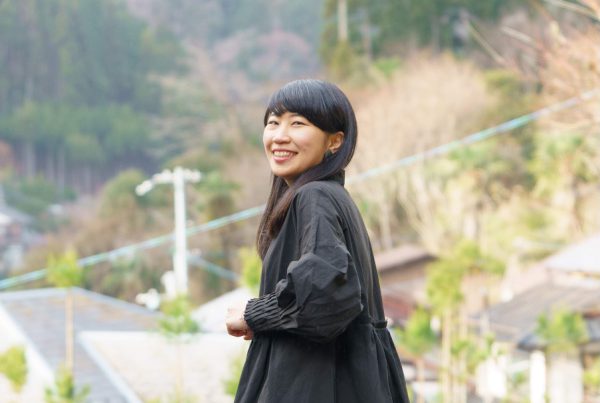As globalization renders the business environment more dynamic, complex, and competitive, the ability to function effectively in different cultural contexts (Cultural Intelligence) has never been more critical for organizations. In a short interview with Wynnona Haynes, a Talent Development Manager at Murata Electronics in the US, she presented us with her hypothesis about why organizations need Cultural Intelligence (CQ) skills and better Global Talent Management.

NR: Good evening Wynnona, thank you very much for making time to have a meeting with the Nagaoka Review team to discuss Cultural Intelligence and Talent Management. To get started, would you tell us a little bit about your story, and what is your role at Murata Electronics in the US?
WH: Absolutely. I have spent my entire career working in adult education and professional development, about fifteen to twenty years. I’ve worked in various companies and universities here in the US. Once I was working in a university and was laid off, so I had to decide what I wanted to do with my career. I took some time to think about things I am passionate about, for example, in developing professionals and helping them reach their goals. Ultimately, I’ve decided to go into corporate education, and that’s what I’ve been doing for the last five years, and that’s what brought me to Murata.
I recently moved to Murata, and I am here to help create the learning and training products and department for Murata Electronics North America. Everything from a general employee training to leadership, and cultural development, these things come under my role in talent development. I enjoy the opportunity to help the managers to develop their staff, so it’s an excellent opportunity for me.
” I love what I do every day. It is so exciting to be a part of seeing people getting better, achieve goals, and seeing the things I produce at work being instrumental in helping people do their job better or feel more confident; it feels good to be a part of that in some small way “
Wynnona Haynes-McMahan
NR: How do you innovate talent management in your company?
WH: We innovate talent management by linking it to employee satisfaction and development. Our goal is to create an environment that is engaging for our employees, and we’re introducing state of the art tools that allows us to do so. This Spring, our teams will have access to socialized and gamified learning opportunities that are mobile accessible. This talent development solution can evaluate the employees’ skills and feed the information into our performance management system, allowing us to address performance issues with immediate resources.
NR: Cross-cultural Communications or just communications?
WH: Of course, Cross-cultural Communications because it is strategically important to global companies (like Murata Electronics) due to the growth of worldwide business and technology. Understanding cross-cultural communication is essential for any company, especially for Murata, that has a diverse workforce. This type of communication involves an understanding of how people from different cultures communicate, interact, understand their differences, and perceive the world around them.
NR: How Cross-cultural Communications skills drive workplace success?
WH: I think our world is more interconnected than ever before. Global companies, not just Americans or Japanese, need to understand that effective communication is central to the success of any organization. To truly understand what it takes to communicate effectively, we must first understand the different cultural factors that influence how people interact with one another because cross-cultural communication is an essential factor in the workplace.
NR: In your opinion, is Cultural Intelligence (CQ) a must-have skill for the modern businessperson, and fundamental for global talent management?
WH: I think Cultural Intelligence (CQ) for a company that has a global Corporate Control such as Murata, could play a huge role in navigating different cultural practices and beliefs to the staff.
If one is uncomfortable employing Cultural Intelligence as a global businessperson or has a less likable personality, they will experience difficulties in their road to success, no matter their role. As for me, talent management, in particular, I have to understand the gap between what American employees expect and what the company needs.

Cultural intelligence is an essential skill for effectively managing diverse teams, and effective leaders need to have Cultural Intelligence as part of their skill set portfolio.
Photo credit : Carmen Morris (Kenroi Consulting CEO, Diversity Consultant)
NR: How can organizations capitalize on Cultural Intelligence (CQ) practices and identify significant indicators of successful inclusion?
WH:I think that’s aligned with the way that we talk about training and
developing employees. The organization had to see and recognize Cultural
Intelligence and communicate across cultures.
When hiring, we sometimes face challenges of hiring talents with less relevant
experiences. Being a global company, we can’t just leave everything to
technology, but speak out about the challenges face. Therefore it’s essential
to address the situation early, as it might implicate how the talent would
ultimately work in the company, i.e., to start a client sale.
In general, the company must address different audiences (internal and external) with different needs. Hence one needs to be more culturally intelligent. So when we talk about inclusion, we need to consider giving people the freedom to express themselves while educating them on the topic of inclusion. Inclusion should also be about the high engagement of employee management and seeing how we could further leverage on their experiences. I believe this is the most useful indicator to determine if the value of inclusion is well-established in the company.
NR: What do you do at Murata Electronics in the US to promote inclusion and to enhance global dexterity?
WH: Managing and communicating with people from other cultures is an essential skill today, and I’m very passionate about our cross-cultural training to enhance the intercultural relationship. We would start from the beginning by introducing different contexts to explore the cultural model and apply them in our strategy for engaging talent.
We also have some programs that allow our employees to achieve that frequently. I’m excited to say that these programs offer an opportunity for our employees to understand how vital cross-cultural relationships are for our company. Knowledge of cultural differences is undoubtedly necessary to be effective in a global setting, but it is insufficient. To be truly useful in foreign cultures, we need to develop global dexterity that is necessary for translating our knowledge into dynamic behavior for a better understanding of who we are and what we represent.
NR: From your experience, what is it like working across culture with employees from Japan and the US?
WH: I think I love it (smiling). It’s exhilarating and presents a lot of growth opportunities. We also have opportunities to do something unique while trying to understand our people. As a Murata employee in the US, you’d meet employees who didn’t grow up in the US. In this case, you will find yourself trying to build a communication bridge for both parties to gain a new type of understanding. It can be challenging, but it’s rewarding because you see the changes as day passes. It becomes everybody’s responsibility to ensure we understand each other.
To illustrate my idea, I had a meeting today with one of our counterparts who speak English as a second language, which was trying to explain something, but some of our people couldn’t follow. Because I’ve worked for weeks with her, I’ve been able to follow her. I’ve been able to incorporate the point she was making in the way they could understand, and it’s good to be able to do that. It is essential to be able to communicate effectively so we could understand other people’s points of view. So, the effectiveness of communication grows when you work together closely with your team.
NR: How do you create and sustain learning synergies?
WH: One of the main priorities of our learning strategy is Diversity and Inclusion. Having it as a subject of exploration and organizational value creates a culture where collaboration, respecting differences, and partnership are expected and essential. Our leadership team consistently evaluates our partnerships (synergy) as a critical indicator of organizational success. Finally, because of our global status, we can tap into the learning and talent management tools and resources that our global counterparts are using. We speak and share regularly and even use some of the same systems so we could promote a “One Murata” mindset.

Photo credit: fr.123rf.com
NR: Employees possessing a high level of Cultural Intelligence (CQ) play an essential role in bridging divides and knowledge gaps in an organization. What is your vision on future organizational culture based on Cultural Intelligence skills? What changes do you hope to see?
WH: What is my vision? I believe that not just Murata but all companies who have a robust cultural representation will start to realize the importance of Cultural Intelligence (CQ). I’m American, but I’m also a staff of an American organization; I’m also a mother, and I’m also a mother to those who are in love with the culture. I guess it happens so organically that we don’t see these things mixing to become part of our personality.
I believe that companies will continue to have cultural relationships, but it will no longer be about different cultures. It would become like corporate identity. When you can leverage these things, it becomes a functional work strategy. This is my vision not just for Murata America, but in general, as someone who works in a global company.
I hope in the next 13-15 years, we can start hacking organizational personality more than corporate culture. I hope to see more companies strategically use their cross-cultural abilities so that they recover talent not just in the US but all over. Talents these days are a little indifferent about how they feel about their company, and they don’t feel the connection with others. I think technology could be an instrument of change in the near future. We are now waiting to catch up on the ways we work and communicate with each other. Even though we will not know how long it would take, I guess that it is a change we could all look forward to!
Wynnona is an extremely bright and high energy professional. She has the wonderful ability to analyze issues and trends objectively, play out the potential outcome, and make proactive decisions based on her analysis. She is an excellent communicator, both one on one and in group settings, and she work very well independently and across teams
– Sharon Giles
Executive Recruiter-National Real Estate Practice, Direct Hire










